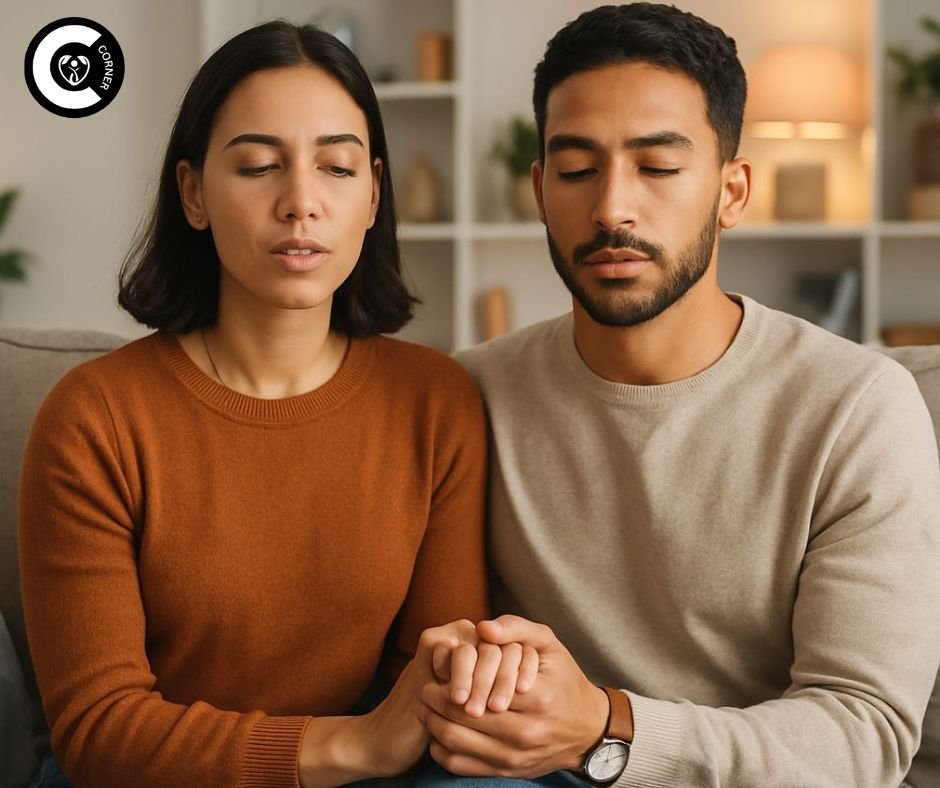When you meet someone new, you could feel both excited and scared. But when those nerves turn into the unmistakable churn of clinical anxiety for both partners, dating with anxiety becomes a whole other level of hard. My spouse and I live in this world. Our love story is connected to the ups and downs of our worried brains. We share our trip not as specialists, but as fellow travellers who can give you hope and useful advice for dating someone who knows how heavy worry can be. Relationship anxiety is always there, but it doesn’t define who we are.
The Unique Dynamics of Dating with Anxiety Together
When both couples have anxiety, dating can be quite difficult. The deep empathy is deep; it’s an innate comprehension of racing thoughts, physical tension, and worries that don’t make sense. We don’t see each other’s disengagement and impatience as disinterest; instead, we see them as silent evidence of personal struggle that makes us feel genuine sympathy. But being so close can make problems worse. Because we are all sensitive in different ways, one partner’s nervous moments can easily set off or make the other partner’s worse, producing a feedback loop that is quite unstable.
A little disagreement might quickly turn into a big fight because of catastrophic thinking (“They’re quiet; they must want to leave”) and overpowering physical symptoms. What is the main problem? Use the profound empathy you have, but don’t let the group’s anxiety take over communication or connection. The first step to deliberately managing anxiety as a team is to understand this dynamic.
Mastering Communication: Our Essential Lifeline for Dating Someone Anxious
It’s important to be able to talk to each other, but when you’re dating someone with anxiety, it’s hard to do. Fear of being judged, making the other person angry, or having brain fog often got in the way at first. We found out that radical honesty was not up for discussion. Creating a common language was a huge step forward:
- Naming It: Instead of saying “I’m fine”, we say “My anxiety is high” or “I feel triggered.” This makes everything clearer.
- The Anxiety Pause: When things get too heated, we call a pre-agreed time-out to practice grounding skills like breathing and taking a brief walk to cool down.
- “I” Statements: Instead of saying “You always…”, say “I feel scared when…” to make people less defensive.
- Proactive Check-ins: Asking “How’s your anxiety been?” regularly helps people get support before a crisis happens. We work together to deal with anxiety by always trying to do something.
Identifying Triggers and Navigating Anxious Moments Together
To date with anxiety, you need to know what sets you off. We became detectives of the inner worlds of ourselves and others. We talked frankly about the things that set each of us off (such as certain situations, tones, or being tired). Knowing what makes my spouse upset (such as unexpected changes or being in a crowded area) helps me not accidentally set them off, and vice versa. But things that set you off will happen. To deal with worrisome times well, you need to:
- Early Recognition: seeing indicators like fidgeting or tension and softly asking, “Are you feeling more anxious?”
- Asking for Needs: Asking for what you need is really important! Needs are really different. We say, “What can I do? Company or space? “Talk or get distracted?” Don’t ever assume.
- Riding the Wave: A lot of the time, you don’t need to solve problems right away. The goal is to give the person what they asked for (a hug, calm, validation) until the wave passes. Helping one another through these stressful times generates a lot of trust and safety.
Also Read: Ultimate Guide To Date With Chronic Illness
Building Our Support Fortress Beyond the Relationship
It wasn’t possible to rely only on each other to deal with anxiety. We made a fortress of support with many layers:
- Fierce Self-Care: It’s not up for debate that protecting your own routines (exercise, hobbies, and alone time) is essential for the relationship.
- External Support: Keeping up with pals gives you important points of view and ways to blow off steam.
- Professional Help: Individual therapy is important for dealing with personal triggers and learning how to cope. Couples therapy works to fix the problems that cause relationship anxiety.
- Community: Meeting other people who are dating with anxiety helps us feel less alone and makes our experience seem more normal. This network takes some of the stress off the romantic relationship.
Celebrating Our Unique Strengths While Dating with Anxiety
Dating with anxiety isn’t simply hard; it also gives you special strengths:
- Celebrating Wins: These minor wins, like using our pause button correctly, designating a trigger early, and giving great support, make us stronger.
- Deep Empathy: Our shared understanding creates a level of kindness and compassion that is unmatched.
- Radical Honesty: We have to talk about our worries and needs with extreme openness, which builds deep trust and closeness. Even if relationship fear still comes up, we see our common problem as a chance to establish a connection that is very strong, very understanding, and very important. We get through the storms together.
Conclusion
If you and your partner both have anxiety, don’t worry; your relationship isn’t over. It takes a lot of work, radical honesty, and strong ways to deal with things. Accept the empathy you both have. Learn how to talk to people when you’re anxious about dating. Know what makes each other uneasy and what you both need when you are. Make sure you take care of yourself and build a strong support network. Be patient; healing doesn’t happen in a straight line.
Every win should be celebrated. Dating with anxiety is hard, but it builds a strong, unique friendship based on understanding and strong support. You are not by yourself. Choose to understand, ask for help, be patient, and establish a love that grows stronger through problems. One step at a time, our story goes on.





[…] Also Read: How To Date With Anxiety […]